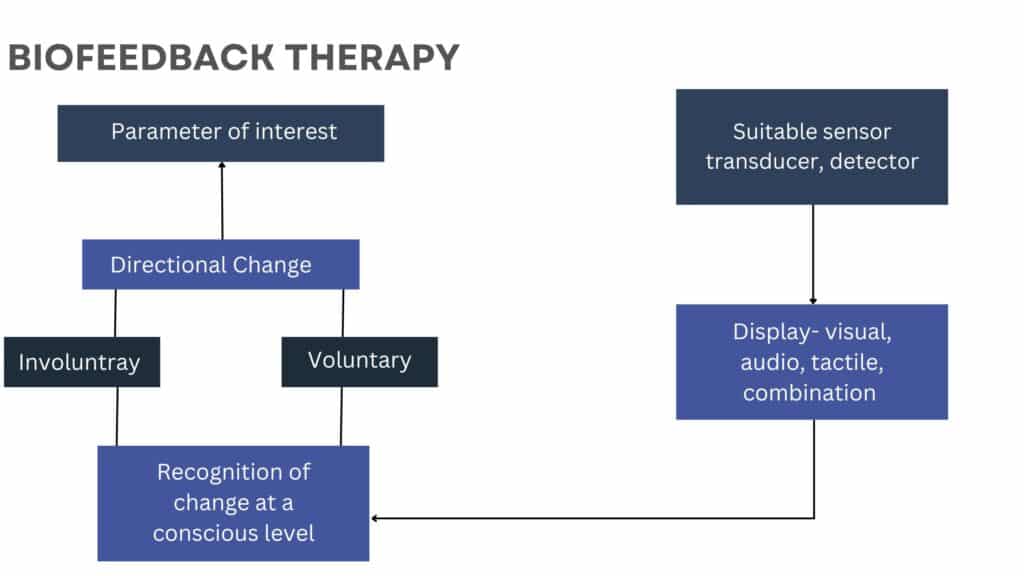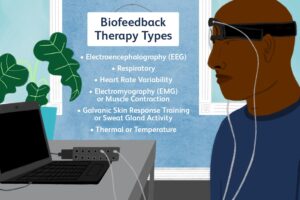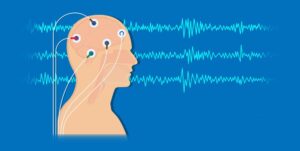In today’s fast-paced world, anxiety has become a common and often debilitating condition for many individuals. The constant stressors of modern life can take a toll on our mental and emotional well-being, leading to feelings of unease, worry, and tension. While various treatment options exist, biofeedback for anxiety has gained attention for its effectiveness.
Biofeedback is a non-invasive therapy that teaches individuals how to control physiological responses such as heart rate, muscle tension, and breathing patterns. By using sensors to monitor these bodily functions, individuals can learn to recognize and regulate their body’s responses to stressors, ultimately reducing symptoms of anxiety.
This blog will explore how biofeedback can help you manage anxiety effectively and restore balance to your life. With biofeedback, you can gain insights into your body’s stress responses and develop techniques to mitigate them. By engaging in relaxation exercises and visualization techniques during biofeedback sessions, you can learn how to monitor and alter your bodily responses, leading to reduced anxiety levels.
Whether you face generalized anxiety disorder, social anxiety, or panic attacks, discover how biofeedback for anxiety can empower you to regain control and find peace of mind.

Anxiety is a common mental health condition that affects millions of people worldwide. It can manifest as excessive worry, fear, or apprehension, making it difficult for individuals to carry out their daily activities. The impact of anxiety on one’s life can be significant, affecting relationships, work productivity, and overall well-being. Understanding the causes and effects of anxiety is crucial in finding effective solutions. Enter biofeedback for anxiety: a promising therapy harnessing the body’s responses to stress.
Anxiety can be caused by various factors, including genetics, brain chemistry, personality, and life events. While some individuals may experience occasional anxiety due to stressful situations, others may have a more chronic form of anxiety, such as generalized anxiety disorder (GAD), social anxiety disorder (SAD), or panic disorder. Regardless of the specific type, anxiety can have a debilitating impact on one’s quality of life. It is essential to address anxiety proactively and seek appropriate treatment options to regain control.

Biofeedback is a technique that allows individuals to gain insights into their body’s physiological responses and learn to control them consciously. It involves the use of sensors that are connected to the body, which measure various parameters such as heart rate, skin temperature, muscle tension, and breathing patterns. This real-time data is then displayed on a screen, providing individuals with immediate feedback about their bodily responses.
The underlying principle of biofeedback is that by becoming more aware of these physiological responses, individuals can learn to regulate them effectively.
For example, if someone is experiencing increased heart rate and muscle tension during a stressful situation, biofeedback can help them identify these responses and engage in relaxation techniques to bring them back to a more balanced state.
Over time, with consistent practice, individuals can develop greater control over their physiological responses, leading to reduced anxiety levels and improved overall well-being.

Biofeedback is a mind-body technique that teaches you to control involuntary bodily processes like heart rate, muscle tension, and breathing patterns. This is achieved by using sensors to monitor these functions in real-time and providing feedback about them – hence the name biofeedback.
Biofeedback is non-invasive and typically administered by a trained therapist. While it doesn’t offer a quick fix, consistent practice can be a valuable tool for managing various health conditions and achieving overall well-being.
Remember, consult your doctor before starting any new treatment, including biofeedback. They can help assess if it’s right for you and guide you to a qualified therapist.

Biofeedback offers a powerful tool for managing various health conditions, but its effectiveness hinges on your active participation and strategic approach. Here are some tips and strategies to maximize your journey:
Remember, biofeedback is a collaborative effort between you and your therapist. By actively participating, utilizing these strategies, and maintaining a positive mindset, you can unlock the full potential of biofeedback and achieve your desired results.
The Bottom Line
In conclusion, biofeedback for anxiety presents a promising solution in alleviating the distressing symptoms associated with this prevalent mental health condition. By providing individuals with real-time feedback on their physiological responses, biofeedback enables them to gain a deeper understanding of their body’s reactions to stress and anxiety.
Through targeted interventions and personalized techniques, biofeedback empowers individuals to regulate their physiological responses, ultimately reducing anxiety levels and improving overall well-being. As a non-invasive and drug-free therapeutic approach, biofeedback offers a safe and effective option for anxiety management.
For more information on how biofeedback can benefit you or your loved ones, connect with us at Relevance Recovery. Your journey to a calmer and more balanced life begins here.